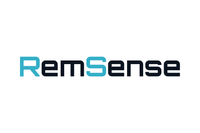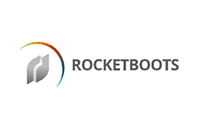4 Pioneering Hedge Funds in Artificial Intelligence
INN spoke with analyst Rick Roche about leading hedge funds that are applying AI and machine learning to their investment strategies.
According to a recent report from JPMorgan (NYSE:JPM), artificial intelligence (AI) is having a notable impact on the investment landscape.
Advances in AI and machine learning are presenting a sea of change in new data sets and methods to conduct investment analysis.
The emergence of new alternative data sets has led to fresh applications, such as the potential to use aggregate price data to analyze inflation, the ability to use satellite imaging to determine oil production and methods of anticipating sales estimates by acquiring data on customer transactions.
AI has also been involved in trade execution and high-frequency trading algorithms, says PwC. Firms have been quick to seize any advantages from very small price discrepancies through these algorithms.
With these developments, companies are applying new data sets and indicators for risk modeling, scalability in data processing and data analysis. Thus far, the leading purveyors of AI applications in investing have typically been quantitative hedge funds.
To learn more, the Investing News Network spoke with Rick Roche, managing director of Little Harbour Advisors, a company that uses a tactical investment approach by applying an algorithm to its investment strategy. Roche, a chartered alternative investment analyst, discussed how AI and machine learning can be applied to gain a competitive advantage in the investing space.
In particular, Roche, who has consulted for over 85 companies, spoke about four hedge funds among the 15 largest hedge funds in the world. He believes these companies are pioneers in applying AI and machine learning methods and alternative data sets to their investment approach.
The companies are: Renaissance Technologies, DE Shaw Group, Bridgewater Associates and Two Sigma. Here’s a closer look at those hedge funds.
1. Renaissance Technologies
As the fourth largest hedge fund by assets under management (AUM) in the US, Renaissance Technologies provides quantitative investing methods based on mathematical and statistical strategies. The fund’s strategies are not disclosed to the public.
The fund had US$57 billion in AUM in 2018, according to Pensions & Investments. As a pioneer in applying AI to its investment strategies, Renaissance is known for hiring people with doctorates in mathematics and statistics.
Co-founder Howard Morgan has a doctorate in operations research from Cornell. James Simons, who is also a co-founder, has a doctorate in mathematics from the University of California, Berkeley, and previously worked at the National Security Association in the mid-1960s.
Renaissance Technologies averaged 35 percent in annualized returns between 1990 and 1998.
According to its Q1 2019 US Securities and Exchange Commission (SEC) 13-F filings, Renaissance’s biggest stakes are in VeriSign (NASDAQ:VRSN) and Align Technology (NASDAQ:ALGN).
2. DE Shaw Group
DE Shaw Group was founded by David E. Shaw, a professor of computer science at Columbia. DE Shaw’s investment method integrates computational techniques based on 30 years of research. The company applies both qualitative and systematic strategies to its approach. Similar to Renaissance, DE Shaw’s strategies are veiled in secrecy.
“There are some good ideas at the intersection of systematic and discretionary investing,” DE Shaw Managing Director Max Stone told the Financial Times. At the core of DE Shaw’s approach is a grounding in scientific perspectives.
Last year, DE Shaw’s Composite Fund witnessed 11.2 percent in returns, according to Reuters. The hedge fund, with US$50 billion in AUM, formerly employed Jeff Bezos, who is now the CEO of Amazon (NASDAQ:AMZN).
Apple (NASDAQ:AAPL), Facebook (NASDAQ:FB) and Qualcomm (NASDAQ:QCOM) were among the fund’s holdings, as of the first quarter of 2019.
3. Bridgewater Associates
Ray Dalio, founder of Bridgewater Associates, began developing algorithms designed for investing in the 1980s. Dalio created algorithms based on rules that he developed and then cross-examined them against historical market trends. When a flaw was detected, the algorithm was adjusted accordingly.
According to Forbes, Paul Volker has described Bridgewater as developing “more relevant statistics and analyses than the Federal Reserve.” Bridgewater is known to keep its investment process undisclosed. Less than 15 people have the entire knowledge of the company’s investment approach.
In an interview with Forbes, Bridgewater’s head of investment research, Karen Karniol-Tambour, said that the company is focused on international markets and China.
Karniol-Tambour discussed how smaller bond markets, such as Brazil, are more liquid than they were in 2013, which provides a potential investment opportunity.
Bridgewater’s most recent 13-F filing with the SEC provides insight into a number of significant holdings in international index funds. These include the iShares Core MSCI Emerging Markets ETF (NYSE:IEMG), which holds a number of emerging market companies.
Among the fund’s top holdings as of June 11 were Tencent Holdings (HKEX:0700), Alibaba (NYSE:BABA) and Taiwan Semiconductor Manufacturing (TPE:2330).
Bridgewater also has a stake in the iShares MSCI Emerging Markets ETF (ARCA:EEM), which is focused on large- and medium-sized emerging market companies; the SPDR S&P 500 ETF (ARCA:SPY); and Vanguard’s FTSE Emerging Markets ETF (ARCA:VWO), which tracks the FTSE Emerging Markets All Cap China A Inclusion Index.
4. Two Sigma
With its headquarters in New York, Two Sigma was founded in 2001 with US$51 billion in AUM. Two Sigma is the fifth largest hedge fund in the world. It has applied AI-driven natural language processing algorithms to analyze meeting minutes from the US Federal Reserve. It has used this analysis to gain a greater understanding of interest rates, monetary policy and broader economic implications.
Founder David Siegel recently spoke at a World Economic Forum roundtable about the benefits and shortfalls of AI technology, including the challenges of explaining algorithm outputs, among other topics.
According to its latest US SEC 13-F filings, Two Sigma’s holdings include Amazon, the Invesco QQQ fund (NASDAQ:QQQ) and the iShares Russell 2000 ETF (ARCA:RCM).
Canadian funds applying AI
Roche also discussed two Canadian portfolio managers that are applying AI techniques. These are Investifai, which is based in Ottawa, and Castle Ridge Asset Management, which is based in Toronto.
Applying deep learning and AI to its portfolio management strategy, Investifai provides core satellite solutions, quantitative strategies, and machine learning models to its client base.
Castle Ridge has developed W.A.L.L.A.C.E., its proprietary AI technology, which the company says has predicted 40 company acquisitions over a 48 month period, in addition to major market downturns.
“Right now, I believe that today there are dozens to maybe a couple hundred investment managers that are using machine learning and alternative investment data. I believe that we’re literally at the cusp of that, and that most advisors and most asset managers are far, far too complacent,” said Roche.
Don’t forget to follow us @INN_Technology for real-time news updates!
Securities Disclosure: I, Dorothy Neufeld, hold no direct investment interest in any company mentioned in this article.
Editorial Disclosure: The Investing News Network does not guarantee the accuracy or thoroughness of the information reported in the interviews it conducts. The opinions expressed in these interviews do not reflect the opinions of the Investing News Network and do not constitute investment advice. All readers are encouraged to perform their own due diligence.

